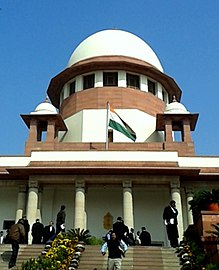Summary
Five applicants filed this case in 2016, seeking: a declaration that the lack of adequate procedures governing evictions violates the rights to life, dignity, and property under articles 22, 24, and 26 of the Constitution, as well as state obligations under the International Covenant on Economic, Social and Cultural Rights (ICESCR); an order compelling the government to develop comprehensive guidelines to govern land evictions; and an order seeking to recover costs of the lawsuit.
The Applicants included individuals who suffered land evictions in Uganda, including one alleging his eviction occurred as part of a mass demolition involving “indiscriminate use of tear gas, which led to the loss of some lives.” They argued that forced evictions lead to pervasive human rights violations, including inhuman and degrading treatment; loss of life and means of livelihood; and destruction of homes. Further, they argued that evictions cause families to be displaced and scattered, which result in children—disproportionately girls—dropping out of school; in ruptured family and communal ties; and in psychological trauma.
The Court noted that while some evictions may be lawful, forced evictions “normally result in severe human rights violations, particularly when they are accompanied by use of force.” The Court cited UN Habitat Fact Sheet No. 21, which states that governments must explore all feasible alternatives prior to an eviction to minimize the need to use force. Furthermore, the Court affirmed that all persons facing evictions are entitled to due process such as a timely, fair hearing, and that the protection of people on land should not be linked to the proprietary rights of the occupants. When an eviction is deemed necessary, those affected should be afforded procedural guarantees including an opportunity for consultation; adequate notice; available information on the eviction; the presence of government officials; proper identification of those carrying out the eviction; a prohibition on evictions in bad weather or at nighttime; the availability of legal remedies; and the availability of legal aid to seek judicial redress.
The Court found there was no comprehensive legal framework governing evictions in Uganda and held that the absence of such guidelines violates rights enshrined in articles 22, 24, 26, 27, and 45 of the Ugandan Constitution. The Court ordered the Ugandan government to start an expedited process of developing regulations of eviction. This process, the Court instructed, should be participatory and inclusive of affected persons.
